Conventional wisdom suggests EV owners should prepare to spend thousands of dollars to replace their batteries well before trading in or trashing the vehicles. But a new study says that’s anything but accurate. Not only are the latest EV batteries lasting longer than the typical internal combustion engine but they’re maintaining most of their range before they finally do need to be replaced.
Batteries are the single most expensive part of today’s all-electric vehicles and consumer surveys show that the idea of having to replace them is one of the biggest reasons why many motorists aren’t willing to buy an EV.
But a new study reveals a very different picture. On average, it finds less than 0.5% of the latest generation of batteries will file after 10 years, and most packs will last anywhere from 15 to 20 years before needing to be replaced. If anything, reports Canadian telematics firm Geotab, the typical battery pack will last longer than the average internal combustion engine.
“This is particularly encouraging,” Geotab Senior Manager Charlotte Argue wrote in a report on the new study which was based on data collected from 10,000 battery-electric vehicles.
Big improvements
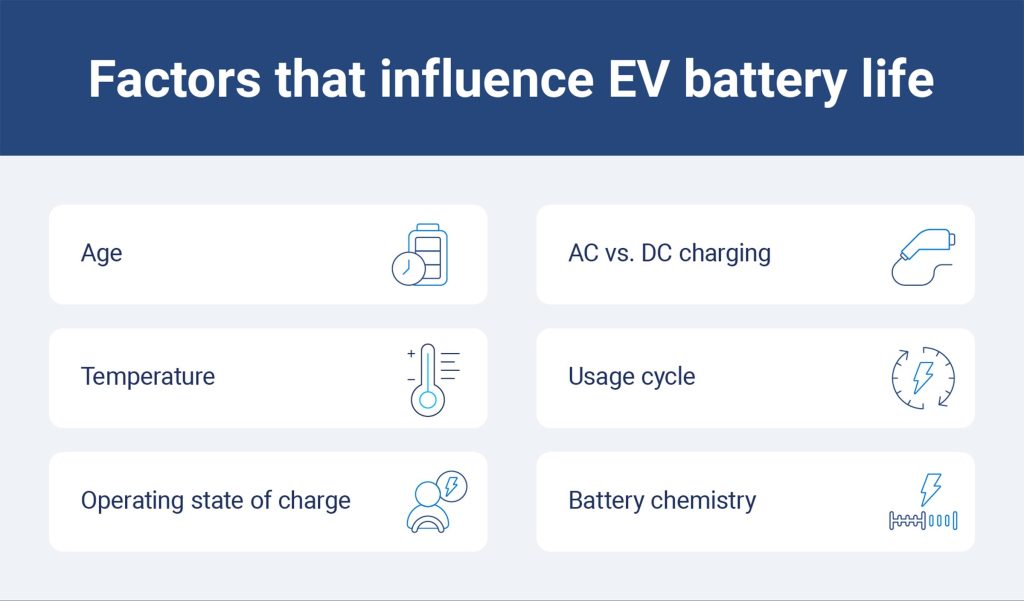 If anything, the new study reveals that the batteries automakers are using in their EVs have continued to improve.
If anything, the new study reveals that the batteries automakers are using in their EVs have continued to improve.
When Geotabs ran a similar study in 2019, it found the average battery pack degrading at a rate of 2.3% per years. In other words, the packs available at the time – typically getting 200 miles per charge – would lose nearly 5 miles range in the first year alone.
The new study found that the latest batteries are degrading at a much lower 1.8% annually. For a 200-mile pack, that would be less than 3.6 miles of range lost in year one. Another finding: It doesn’t matter how often you drive your EV. The study found that frequent usage doesn’t increase battery degradation – though there is a slight increase when vehicles are only plugged into high-voltage public chargers.
“Yes, EVs do lose range over time due to battery degradation,” wrote Argue. “However, with an average degradation rate of just 1.8% per year, EVs should retain most of their range for over a decade, ensuring their long-term practicality and value.
What’s behind the improvement
“This improvement highlights ongoing advancements in battery technology and durability,” wrote Argue.
Manufacturers are continually revising the chemistry used in their batteries. They’re reducing the use of some metals, like cobalt, linked to quality and reliability. They’ve made improvements in the design of their packs, among other things, to the climate control systems that keep modern lithium-ion batteries as close as possible to the 70 to 80 degrees Fahrenheit that they like best.
And they’ve improved software controls to minimize battery strain. Toyota, for example, is introducing a feature on the 2026 update of its bZ model that will automatically “pre-condition” the pack to the ideal temperature when its time to plug back into a charger.
More News
- Is Another Mideast Energy Crisis Looming?
- Feds Investigate Safety Violations by Tesla Robotaxis
- Trump Tariffs Expected to Raise Vehicle Prices by $2,000
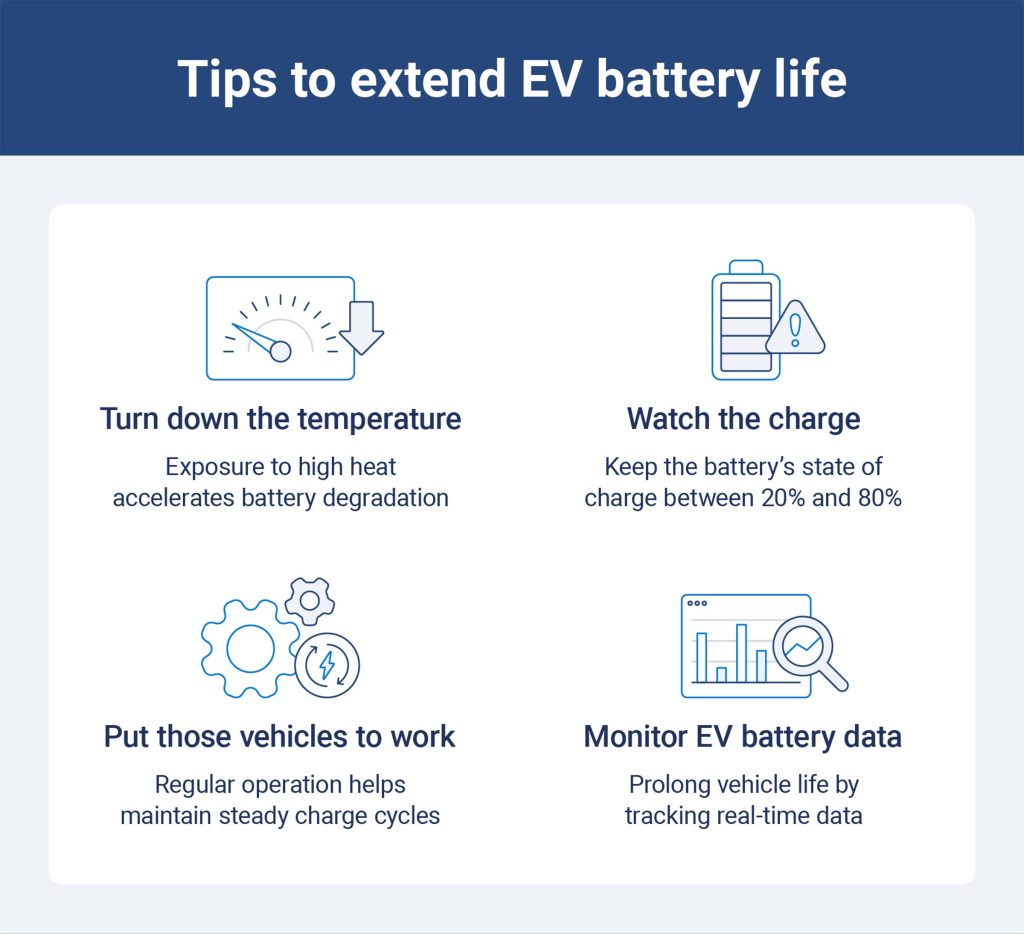 Batteries will outlast the vehicle itself
Batteries will outlast the vehicle itself
Perhaps the most significant finding by Geotabs is that even after 20 years on the road an EV owner should expect to get about 64% of its original range.
What’s notable about that is the battery pack should last longer than the rest of the vehicle.
Today’s typical automobile is usually ready for the junkyard after 14 years. By that point substantial repairs have been made, potentially including a new or extensively repaired internal combustion engine.
The Geotab study does make a few recommendations to maximize the life of your EV’s battery pack:
- Stick with EVs using liquid, rather than air cooling for their packs;
- Unless you have a long trip ahead, set the vehicle’s software to top out the charge at 80% of capacity and try to plug back in when it’s down to 20%;
- Rely on slower Level 2 240-volt chargers v high-speed public DC chargers, when possible; and
- The data Geotabs collected show that “keeping EVs in regular operation can promote optimal battery health,” as inactivity actually can lead to battery degradation.

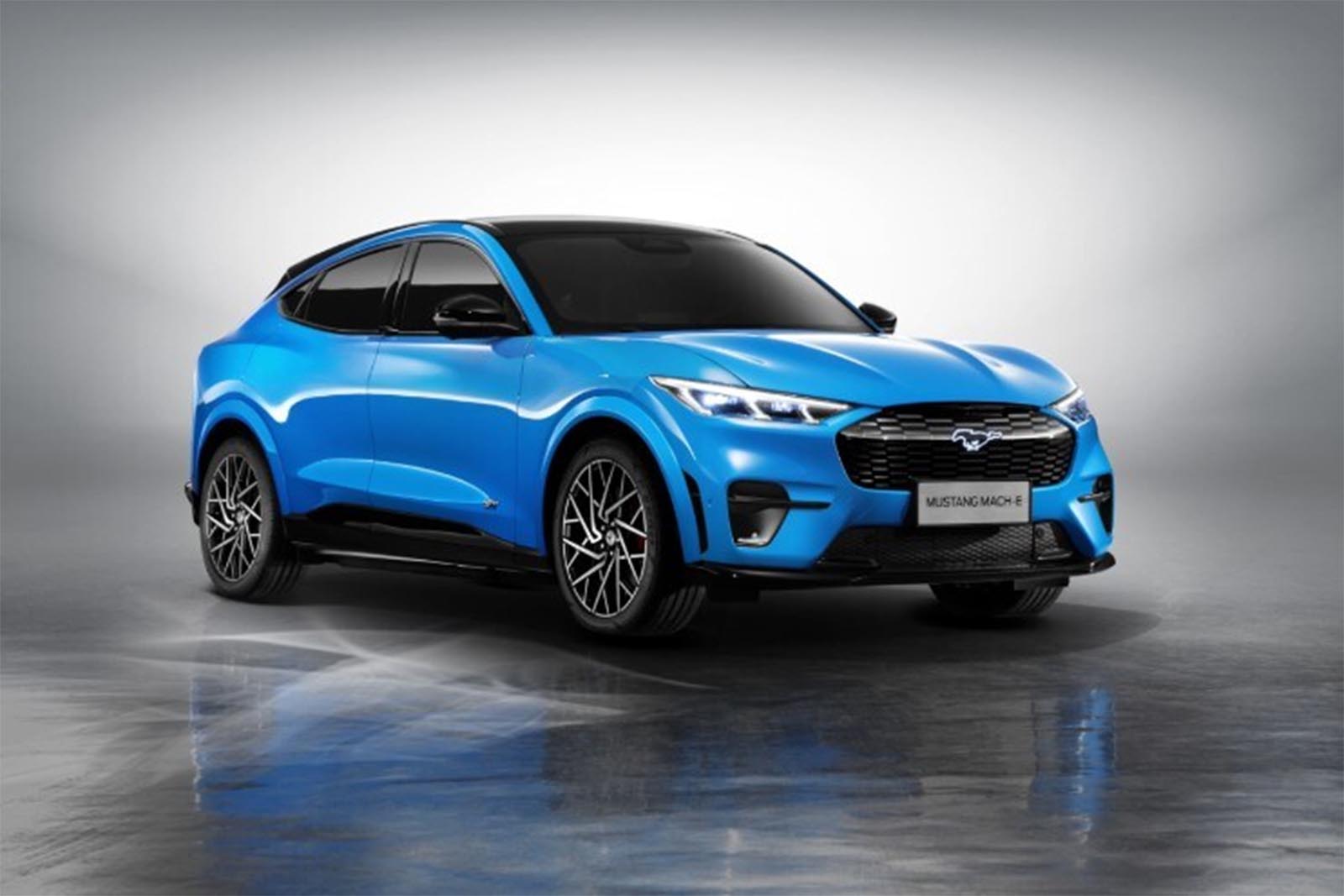
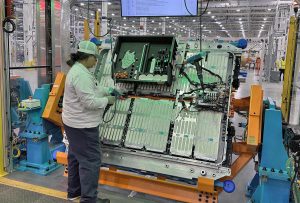
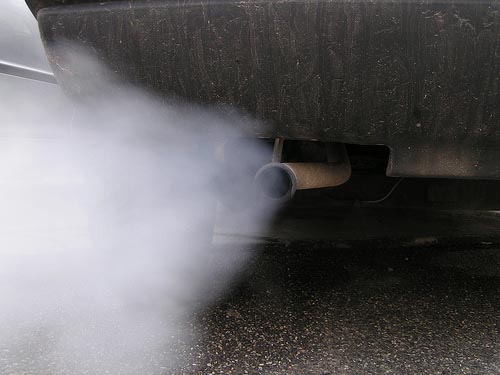
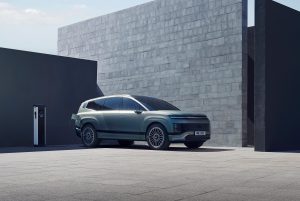


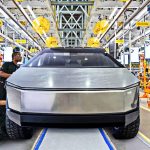


Keep dreaming.
And your data comes from…?